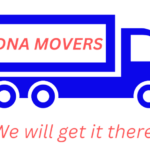How do I choose a reliable moving company?
Choosing a reliable moving company is essential for a smooth and successful move. Start by researching moving companies in your area and checking their reputation through customer reviews and ratings. Look for companies that are properly licensed and insured, and have years of experience in the industry. It’s also helpful to ask for recommendations from friends, family, or trusted sources. Additionally, consider factors such as the range of services offered, professionalism of the staff, and good communication throughout the process.
How much does it cost to hire a moving company?
The cost of hiring a moving company varies depending on several factors such as the distance of the move, the size of your home, the number of rooms, additional services required, and the time of year. It’s best to obtain quotes from multiple moving companies to compare prices and services. Keep in mind that the lowest price may not always guarantee the best service, so consider the overall value and reputation of the company.
